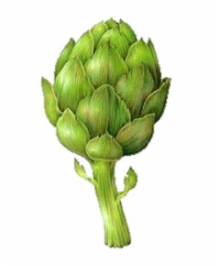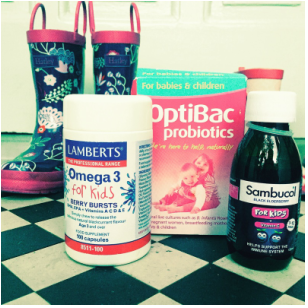 This is a beautiful recipe (adapted from the ocado website) which I love for three reasons. 1. It is super quick, easy and tasty. 2. From a nutritional point of view, its a winner. 3. People don't eat enough artichokes, which are, in my opinion a 'super' food. Artichoke is a great source of vitamin K, vitamin C and folate as well as the minerals calcium, magnesium and potassium. Plus full of fibre. Which we love. It's also full of antioxidants, in fact a study by the American Society for Clinical Nutrition (http://ajcn.nutrition.org/content/84/1/95.abstract), concluded it has a higher antioxidant status than blueberries and dark chocolate! Artichoke also contains constituents which have liver protective qualities. Which lets be honest, at this time of year, when our bodies, immune system and livers get a battering, can only be a good thing! It can increase the production of bile (okay sounds gross but totally necessary) which helps speed up the transit of food through your digestive system, reducing bloating. In fact they were used as a digestive aid in Egyptian times - and of course now we know exactly why. Its also a prebiotic, which feeds the probiotics (or 'good' bacteria) that resides in your stomach. Artichoke is also reported to be beneficial for those with:
Whilst these more serious issues may warrant taking artichoke leaf extract (under the guidance of a doctor or qualified nutritional therapist), eating more artichokes is almost certainly going to be beneficial to health. The heart of the artichoke is eaten because it is softer and the most edible part of the plant. Whilst it would be recommended to buy and prepare your own artichokes, this is, well...hard work to be honest! Buying a jar of artichoke hearts is very acceptable. Make sure it is preserved in olive oil with no / little added salt. So hopefully I have persuaded you about why the artichoke is so great. Here is a wonderful way to serve it at a dinner party, or just smother it on toast or crackers for an incredible health boosting taste sensational snack. This recipe also contains raw garlic (with potential cholesterol lowering, antibacterial, anti-fungal, blood pressure activity) virgin olive oil (with antioxidant, vasodilating, and antiplatelet properties, and potentially cholesterol lowering) and fresh basil (antibacterial, anti-inflammatory and cardiovascular health benefits). So really this is a superfood dip! Serves 2-4. Takes 5 minutes maximum. Ingredients
Instructions In a food processor, blend together all the ingredients. Whizz until smooth. Add a squeeze of lemon juice and top with a little zest before serving with crudités or wholewheat breadsticks. ENJOY!
0 Comments
 Yes autumn (aka snot season!) is most definitely here. And whilst its lovely to be having wood fires again and wrapping up in hats and scarves, it does bring the inevitable sniffy noses, feeling run down and days off school or work.....big sighs..... After completeting my studies and learning a little more about the importance of supplementing in certain situations, I regularly make sure I supplement my children's already pretty healthy diet. I see this as strengthening their own natural immune defences and keep them in optimal health throughout the year. Nothing in this area is totally black and white and it really is up to the informed choice of the parent, but I would always say when asked why I choose to supplement, which is better - acting preventatively or waiting till the child is unwell then dosing up on Calpol or antibiotics? Most people now know the risk of antibiotics which should really only be given in an emergency situation and not for many seasonal illness' (remember antibiotics kill bacteria infections NOT viral!) But recently there has been much in the mainstream media about the overuse of Calpol with children. It should always be remembered that Calpol whilst suitable for children, is still paracetamol, a pharmaceutical drug which a small body has to process and detoxify. Paediatricians are now warning that overdoing paracetamol or giving high doses increases the risk of developing asthma, as well as kidney, heart and liver damage. It should only be given to a child in pain and discomfort or with a very high fever and not for general malaise or a slight temperature. Whilst given with the best intentions, parents can often do more harm than good. So, to avoid these situations I try and make sure a. my children's diet is good (sometimes easier said than done!) and b. I give them supplements for areas I feel they may be deficient. There is much evidence and advice now given by the NHS about the importance of supplementing children under 5 living in the UK with vitamin D, A and C all of which play a crucial role in our immune defence. (http://www.nhs.uk/conditions/pregnancy-and-baby/pages/vitamins-for-children.aspx) I choose to give these vitamin to my children with an omega 3 fish oil high in DHA (Lamberts) to support cognitive function plus brain and eye development - again very well researched and documented health benefits. My children don't eat a lot of oily fish as much as I try (!) so I feel happier knowing they are getting a source from elsewhere to support their continuing development: https://www.ncbi.nlm.nih.gov/pmc/articles/PMC3738999/ I also feel a probiotic is justified in the winter months and there is some research on the reduction of common infectious diseases in children who are given probiotics https://www.ncbi.nlm.nih.gov/pubmed/20729255 And if you have had to given your child antibiotics, it is a good idea to look into building up their 'good' bacteria reserves again with a good quality probiotic supplement if possible. I like the brand Optibac as all their probiotics are fully backed up by current research. Lastly, I use Sambucol, an elderberry extract, during winter also. Elderberry is a traditional method of warding off colds and flu. https://www.ncbi.nlm.nih.gov/pubmed/27023596 And recent studies have also found it effective in the treatment of flu, cutting the severity and duration of the illness if taken soon after symptoms appear: http://www.webmd.com/cold-and-flu/news/20031222/elderberry-fights-flu-symptoms And most excitingly, no side effects. Always great to have in your bathroom cabinet I say! |
AuthorLouise Cullen Archives
October 2020
Categories
All
|
 RSS Feed
RSS Feed
